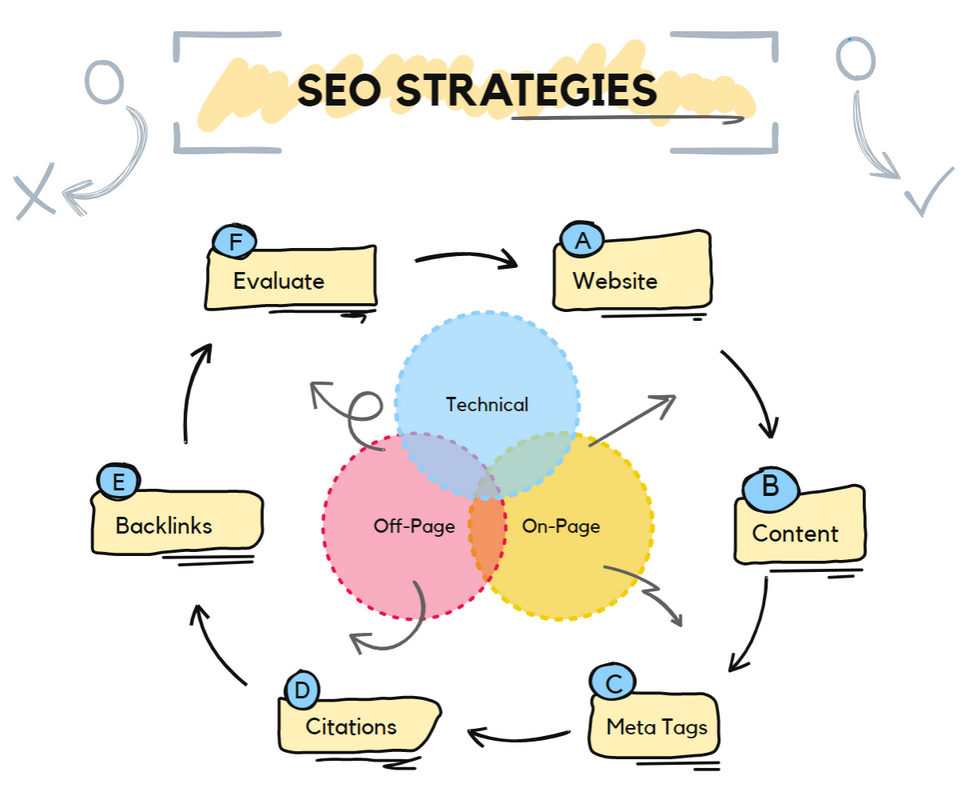
What is Off-Page SEO?
Off-page SEO, also known as off-site SEO, refers to a set of strategies and activities that occur outside your website to improve its visibility and rankings in search engine results. While on-page SEO focuses on optimizing elements within your site, off-page SEO extends beyond your domain and involves actions taken elsewhere on the web1.
Key Aspects:

Link Building: The cornerstone of off-page SEO, link building involves acquiring high-quality backlinks from other reputable websites. These links act as “votes” for your content, signaling to search engines that your site is authoritative and relevant.
Social Signals: Social media platforms play a significant role in off-page SEO. Shares, likes, and comments on your content contribute to its visibility and credibility. Engaging with your audience on social channels can indirectly impact your search rankings.
Local Listings and Citations: For businesses with physical locations, optimizing local listings (such as Google My Business) is crucial. Consistent NAP (Name, Address, Phone Number) information across directories helps search engines understand your business’s legitimacy and relevance.
Brand Mentions: When other websites mention your brand or content without necessarily linking to it, it still contributes to your online reputation. Search engines recognize these brand mentions as signals of authority and trustworthiness.
Guest Blogging: Writing high-quality guest posts for relevant websites allows you to showcase your expertise and gain exposure. In return, you often receive a backlink to your site.
Influencer Marketing: Collaborating with influencers or thought leaders in your industry can amplify your brand’s reach. Their endorsement can lead to increased visibility and traffic.
Measuring Off-Page Impact:

To measure the impact of off-page SEO efforts, consider the following:
Domain Authority (DA): A metric that predicts how well a website will rank in search engines. It considers factors like backlinks and overall site quality.
Page Authority (PA): Similar to DA but specific to individual pages. It estimates the likelihood of a particular page ranking well.
Why Does it Matter?
Visibility: this helps your content get discovered by search engines and users. Without it, even the best on-page optimizations may go unnoticed.
Credibility: Backlinks from authoritative sites vouch for your content’s quality. Search engines trust these endorsements.
Traffic: Well-executed off-page strategies drive targeted traffic to your site, increasing the chances of conversions.
